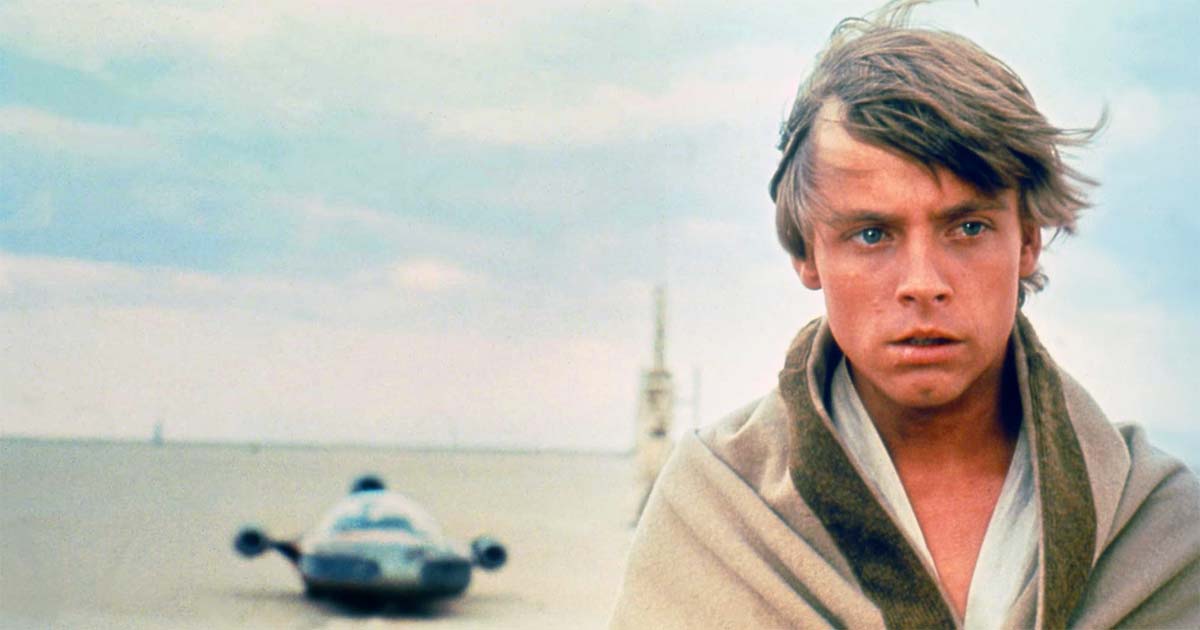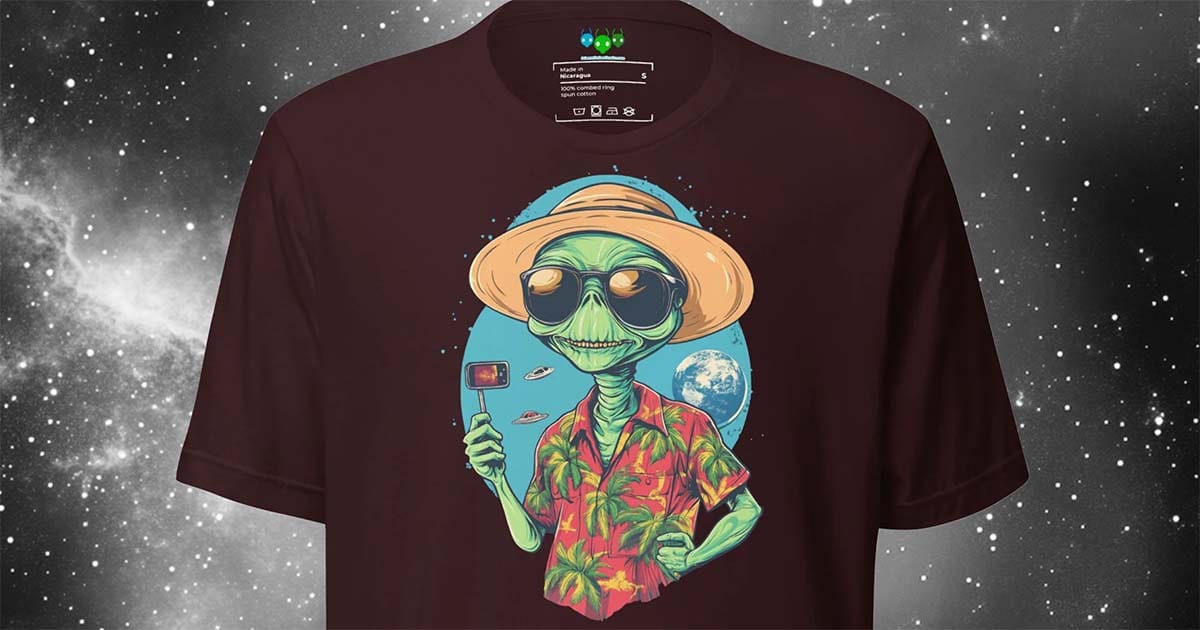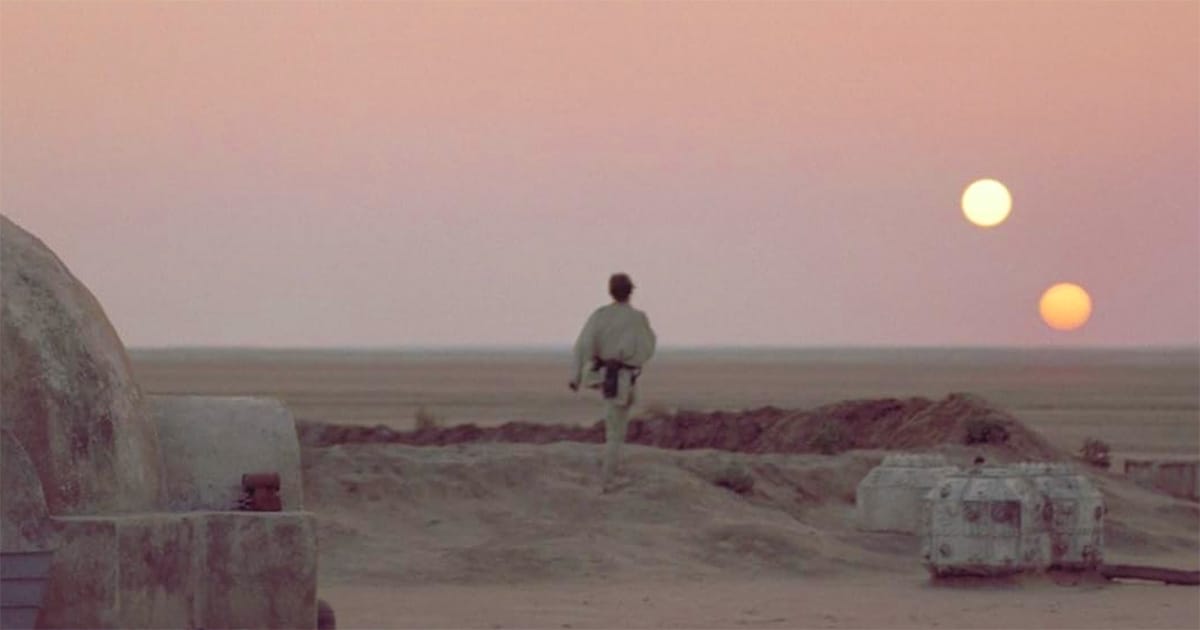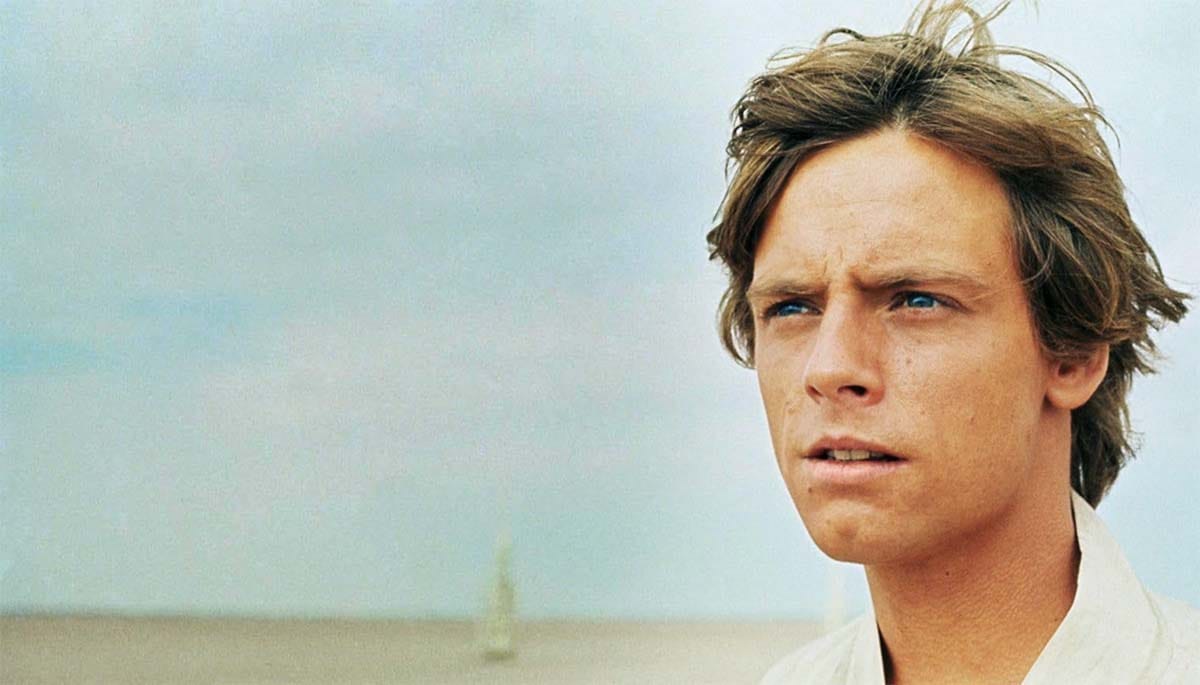Sci-Fi Still Needs Heroes
Luke Skywalker reintroduced the classic hero’s journey to science fiction. Nearly fifty years later, his path still echoes in stories of sacrifice, courage, and moral clarity—from Luke to Logan.

This Week in Classic Science Fiction - "Star Wars Released"
With little fanfare, a movie opened in just 32 theaters nationwide on May 25, 1977. It was called "Star Wars," and almost no one predicted what would happen next.
Word spread fast. Theaters filled. Young men returned again and again, bringing friends, brothers, and sons. By summer's end, "Star Wars" had become more than a hit. It was a shared experience—a cinematic rallying point for those hungry for wonder, heroism, and hope.
At a time when science fiction on screen had grown dark and pessimistic, George Lucas reached backward to move forward. He drew from classic myths, Westerns, and war films to craft a story rooted in moral clarity. "Star Wars" offered a vision where good and evil were not blurred, where courage and faith mattered, and where even a farm boy could make a difference.
Sponsored by The Cosmic Tourist Sci-Fi T-shirt

Go Intergalactic Tourist Chic
Rock this tee featuring a visitor from beyond sporting shades and a Hawaiian shirt, snapping the ultimate Earth selfie. It’s proof that even aliens appreciate a good vacation photo op. Perfect for sci-fi lovers, travelers, and anyone who doesn't take life (or space travel) too seriously. Comfortable, unique, and a guaranteed conversation-starter. Grab this cosmic design now and show off your stellar sense of humor and style.
Shop Right Now
From Luke to Logan: The Enduring Power of the Hero's Journey
You remember the scene: a young man stood beneath twin suns and looked toward the horizon. That moment—brief, quiet, and filled with longing—helped launch one of the most enduring archetypes in modern science fiction. Luke Skywalker, the reluctant farm boy turned freedom fighter in "Star Wars," wasn't just a character. He was a return to form—a reminder that science fiction could still tell stories with heroes.

The film's success wasn't just about special effects or spaceships. It was about a structure—a story shape—that reached into something older than cinema. George Lucas followed a pattern laid out by mythologists and storytellers across centuries. The hero's journey, as mapped by Joseph Campbell, gave audiences a story they knew deep down, even if they couldn't name it. That structure—call to adventure, crossing the threshold, death and rebirth, return with wisdom—found its modern champion in Luke.
In "Star Wars," the beats are clear. Luke receives the call when R2-D2 plays Leia's message. He resists, then accepts after tragedy strikes. Obi-Wan serves as the mentor. Mos Eisley is the threshold. The Death Star is the abyss. The loss of Ben, the rescue of Leia, and the trench run—all form part of a path that leads to transformation. Luke begins naive but ends the film as a hero, choosing service over safety, duty over comfort.
It was a moral journey, not just an emotional or dramatic one. Luke's transformation was shaped by courage, belief, and sacrifice. The film placed good and evil in clear opposition and trusted the audience to root for what was right. In the late 1970s—when many science fiction films leaned into ambiguity or despair—"Star Wars" did something audacious: it gave the genre its moral compass back.
Yet the story of the hero did not stop with Luke. As science fiction moved into the 1980s and 1990s, the structure of the hero's journey remained, but its expression changed. Characters grew more complex. Worlds grew darker. Still, the arc persisted.
Consider Deckard in "Blade Runner." He is not the wide-eyed youth, but the tired enforcer. His call is murky, his path reluctant, his morality uncertain. And yet, as the story unfolds, he confronts questions of identity, empathy, and choice. He begins as a tool of the system and ends as something closer to human—changed by experience, moved by sacrifice. The hero's journey is still there, just in a grimmer shade.
Or look to Alex Murphy in "RoboCop." Brutally attacked and remade into a machine, he slowly reclaims his identity. Like Odysseus or Arthur, he must remember who he is. His trials are technological and existential, but the arc remains: he crosses into a world of death, returns with new understanding, and chooses to act. He becomes a protector not by programming, but by rediscovered will.
As the decades passed, science fiction heroes kept evolving. Luke's wide-eyed idealism gave way to heroes who were broken, bitter, or burdened—but never irrelevant. In fact, their flaws made their journeys more powerful.
In the 21st century, one of the clearest inheritors of this tradition is Logan, the mutant also known as Wolverine. In James Mangold's "Logan" (2017), we find a man at the end of his path. He is tired, violent, and jaded. Yet the call still comes—in the form of a child who needs him. His world is bleak. His choices are hard. But he answers the call, protects the innocent, and lays down his life to give others a future.
Logan's story is not one of triumph, but of sacrifice. It is no less heroic for that. In fact, it may be more so. He does not fight for glory or redemption. He fights because it is right. His path echoes the same beats Luke walked in 1977. The shape holds, even when the man is changed.
Modern science fiction often dresses its heroes in darker clothes, surrounds them with moral gray, and tests them with heavier burdens. But the journey remains. Din Djarin in "The Mandalorian" begins as a bounty hunter, becomes a guardian. K in "Blade Runner 2049" follows a trail of identity, ending in selfless action. Even in dystopias, even in war zones, the hero's journey continues to give science fiction its human center.

Why does it endure?
Because it answers something timeless. In every age, men need stories that tell them the world is broken but worth fighting for. That sacrifice matters. That courage counts. That one man can make a difference—not because he is perfect, but because he chooses the hard road.
"Star Wars" did not invent that message. But it brought it back when science fiction needed it most. And even now, when heroes are bloodied and bruised, they still walk the same path Luke did—toward meaning, toward duty, toward hope.

